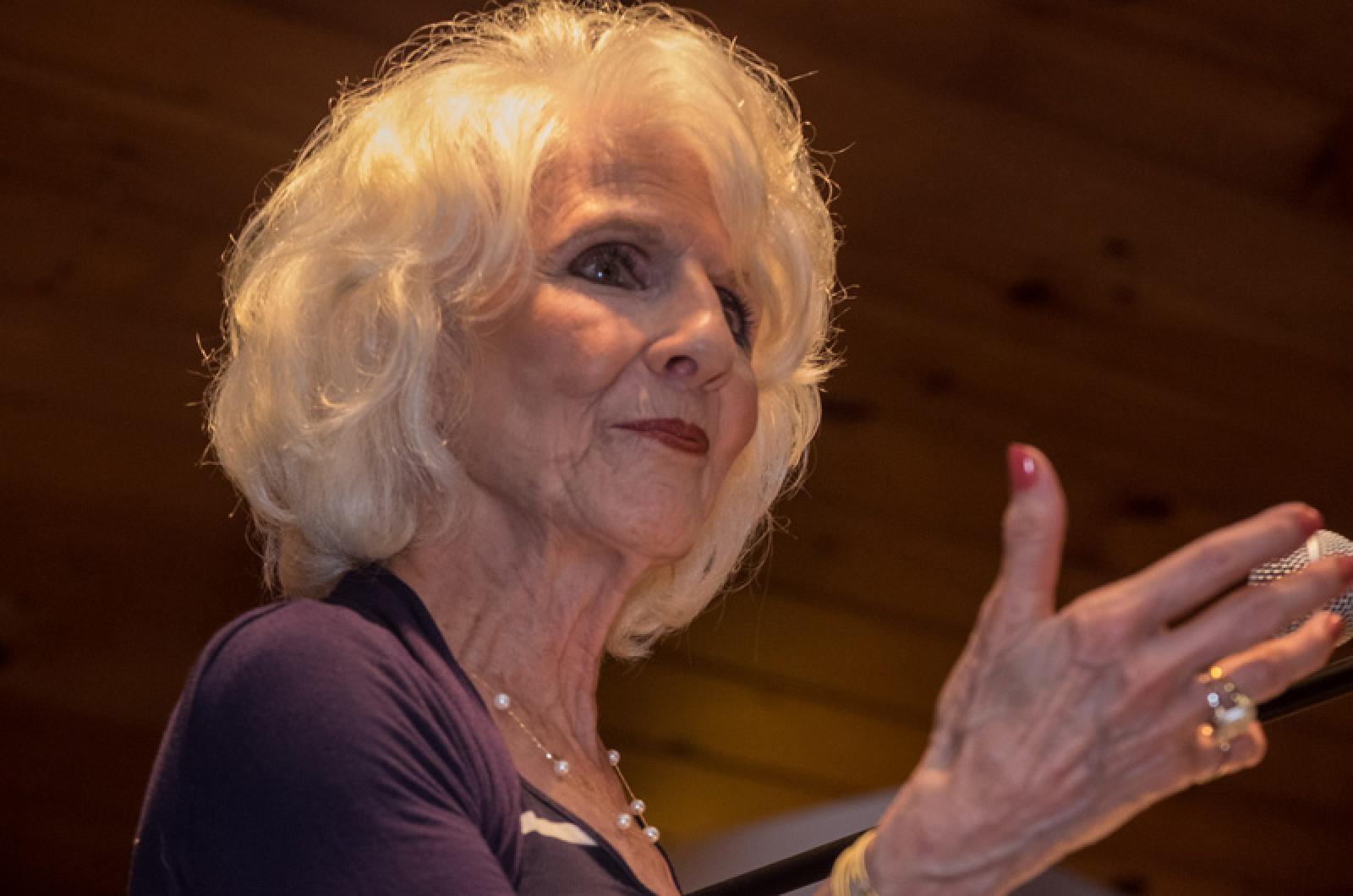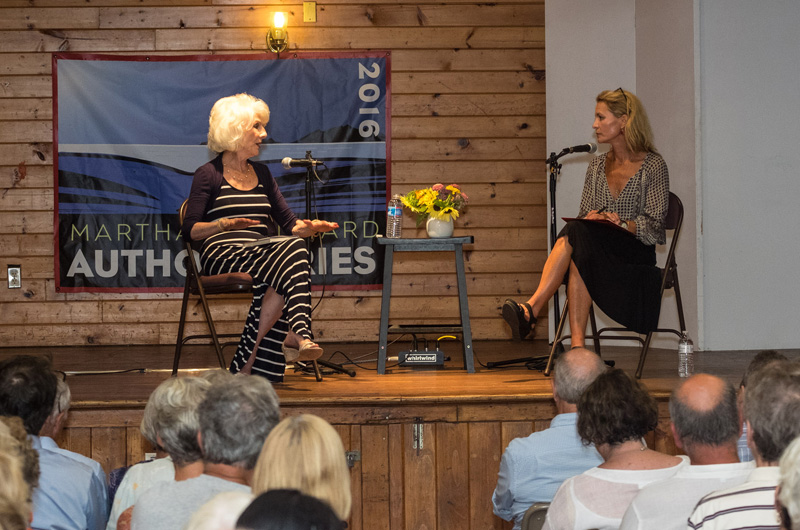Most people are used to Diane Rehm keeping them company in their homes, cars or at their desks over the radio waves. For 37 years, she has hosted NPR’s The Diane Rehm Show. On Thursday night, she was physically in the building with a sold-out crowd in the Chilmark Community Center, talking about her new book, her radio show and about stepping away from the microphone at the end of the year.
As a part of the Martha’s Vineyard Book Festival Author Series, Ms. Rehm read a small excerpt from her book, On My Own, which focuses on the death of her husband of 54 years from Parkinson’s disease, and her struggle to reconstruct a life without him.
Ms. Rehm was interviewed by the writer Alexandra Styron. She spoke of how she began in radio, shared different interview experiences (her worst interview was with Tom Clancy), the key to staying neutral, and the time to take a stand.
Ms. Rehm met her husband John when she was a secretary at the State Department and he was an attorney working with her boss. They both loved baseball; she played second base on the women’s team and he played on the men’s team. They married and she planned to be a homemaker. But as her children grew older and she read the work of feminist Betty Friedan, she realized she wanted something more out of life. She decided to volunteer at a radio station. On the first day of work the host of the program did not show up and Ms. Rehm was thrown into the booth with the manager of the station. Together, they did a 90-minute program with a representative of the dairy council.
Ms. Rehm was prepared with a lot of questions.
“As a mother and as a homemaker I knew lots about butter and milk and that sort of thing and I was frankly convinced the Department of Agriculture had the food pyramid all wrong,” she said. “And so I challenged her, and that was the first day on the air.”
She’s been on the radio ever since.
During her long career, Ms. Rehm has conducted many memorable interviews on her show, including with former President Bill Clinton, Archbishop Desmond Tutu, Julie Andrews and Toni Morrison. One interview that still lingers deeply was with Fred Rogers from Mr. Rogers Neighborhood. When she asked what he did when he was sad, he told her he played the piano. Then he said he’d probably be playing the piano a lot. When she asked why, he said because his stomach hurt.
“I did not have the courage to ask why does your stomach hurt, and he was dead three months later,” she said. “Mine was the last live interview he did.”
Though she has hosted The Diane Rehm Show since 1979, Ms. Rehm is not infallible. She shared one mistake that she seriously regrets.
In an interview with Sen. Bernie Sanders last year, she incorrectly stated that he had dual citizenship with the United States and Israel. He said no, and she insisted. He said no again, and she apologized.
“It was the worst mistake I ever made,” she said. After the show she sent an email apologizing again, and although an aide told her the senator forgave her and loves her, she said she could not forgive herself.
Her job becomes incredibly difficult when the subject is controversial, she said. She has personal opinions on abortions, gun rights and Israel, but as a host she must give equal voice to dissenting sides.
“Seek the truth, state the truth and try to garner as many opinions and thoughts, dig as deep as you possibly can before you write or before you speak,” she suggested. “And I’ve dug for almost 38 years now, and it’s time for me to speak out.”
As for everyday interactions, the key to conversing with people whose opinions differ from your own is to ask questions, she said.
“I don’t know if people can be convinced of another idea, all we can do is see if we can find out more,” she said.
But with On My Own, Ms. Rehm has developed a strong stance on one subject in particular that she is continuously speaking out about: the right to die.
“If I choose to go or if I choose to stay, the decision is mine,” she said.
Her husband was so debilitated by Parkinson’s he could not do anything for himself. He was ready to die and told his doctor that he was ready. But instead of being able to control the end of his life and make a choice, his death was a long and slow process. Though medications exist for physician-assisted suicide, it is only legal in a handful of states. Ms. Rehm said California approving the Death with Dignity bill may be a tipping point.
Ms. Rehm said she understands physicians who have a hard time reconciling suicide with their oaths to not cause harm. She sees the solution coming from broader discussions in medical school.
This was Ms. Rehm’s first visit to the Island and and her talk was warmly welcomed by the Vineyard audience. One audience member even invited her to the Sunday morning softball game in Chilmark.
“If you’re around we could use a second baseman,” he said.








Comments (3)
Comments
Comment policy »